« Every day 20-30 men, but I have a child to keep »: those letters of the prostitutes of closed houses

« Dear Senator, free us. » 70 years ago Lina Merlin and Carla Barberis (pseudonym of Voltina, wife of the future president Sandro Pertini) collected 70 letters of prostitutes addressed to them in a book that made a sensation
Letter n ° 54: «We enter with unconsciousness, the mirage of stupid ambitions. And after, when we see that this sweaty money with our best gift does not give the result and even happiness, we are no longer able to find the real way (…) The years pass, the hopes, some illusion of love, a great pity takes us for ourselves, to be so openly sun « . As A prostitute wrote to Lina Merlin in one of the 70 letters that went to form the book « Letters from closed houses » Elaborated and published by the same socialist Senator together with the journalist Carla Barberis (pseudonym of Carla Voltolina, wife of the then vice-secretary of the PSI Sandro Pertini) in 1955, while the debate was underway for the approval of the law that would lead to the closure of the « prostitution » houses as they were defined in the 1931 regulation.
70 years have passed since the publication of that volume that raised a sensation but had the merit of give voice to the direct interested partiesthe girls of the « houses », show their desires and their hopes for redemption and make Italians more aware of the real life condition in the post -cutbulas. The girls tell stories of segregation and slavery, reveal the impossibility of changing life but hope for the liberation that will come from the new law. Merlin had as its objective dignity to women In the name of the principles of equality of the Constitution and the idea of making prostitutes speak had been disruptive. Because he finally shifted attention from issues such as moral, health (that of customers) or decorum to the theme of people’s rights.
The letters
The letters, seventy in all, are divided into three parts: how you enter, how you live in the houses and why it is very hard to get out of it. They are stories full of humanity, written by simple people and always very lucid in the analysis of the situation. Some letters are signed with name and surname, others with initials or pseudonyms. Some is sent by « A group of girls »
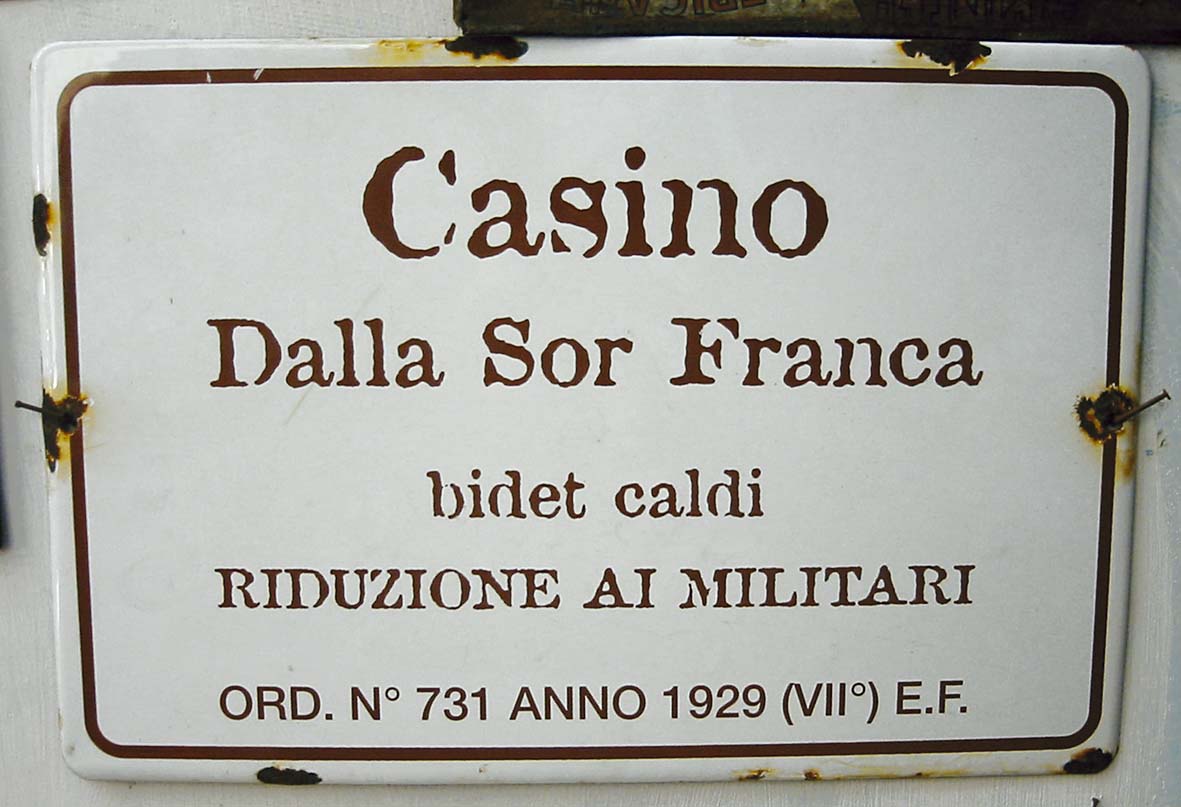
It begins like this
«I am one of those – read in letter number 2 – I will tell you because at 25 I do this life. My main one, when he saw that I was the daughter of NN on the birth of birth, he immediately claimed to take advantage of me. The rest goes without saying ».
«When one of us is in the tour – it is the letter number 7 – if it is not over, they do not let it come out again, because moreover they make us sign many bills, we indebted to dress, for diseases, for everything. When we do not end up at the cemetery we end up at the hospital. Yet we are young and we seem to be old ». Many of these women have children, as the letter number 9 tells
Free prisons
«… every day twenty or thirty men. But I have a son I have to keep and I have to do these things necessarily: my baby is in the college. He must never know. It costs a lot of money to keep it «
Someone then thinks about the future. What will happen when the houses are closed. «(…) For the adverse fate I entered these free prisons. (…) Will the government give us a job? Or will we be despised and removed as we are today? «
Health checks? FICTION
Even more hard are the stories of how life takes place: testimonies that also dismantle the prerequisite for which houses are held, or health checks and the protection of public health. This tells the letter number 13:
“They make me laugh when they come for control visits. The majority always agree (they eat everyone and everyone is silent). (…) They made her make the blood test, after ten days she had the positive response. How many syphilitics à (So in the text) only her? Let’s say they are 40 a day, ten days 400 people «
Check a few and facade and in addition the mockery (letter number 14)
« … on the side of the young ladies, all the expenses of disinfectants, doctors, professors, because everyone eaten, gifts to the owners, to the guidelines, must be removed. It is also useless for you to send commissions and ask us in front of the director, to the owners, or even without these, inside the houses. The truth can never be said, not for cowardice, but because you know you can pack and leave. (…) If you are sick, you have a fever, you have to work the same because otherwise the mistress sends you away «
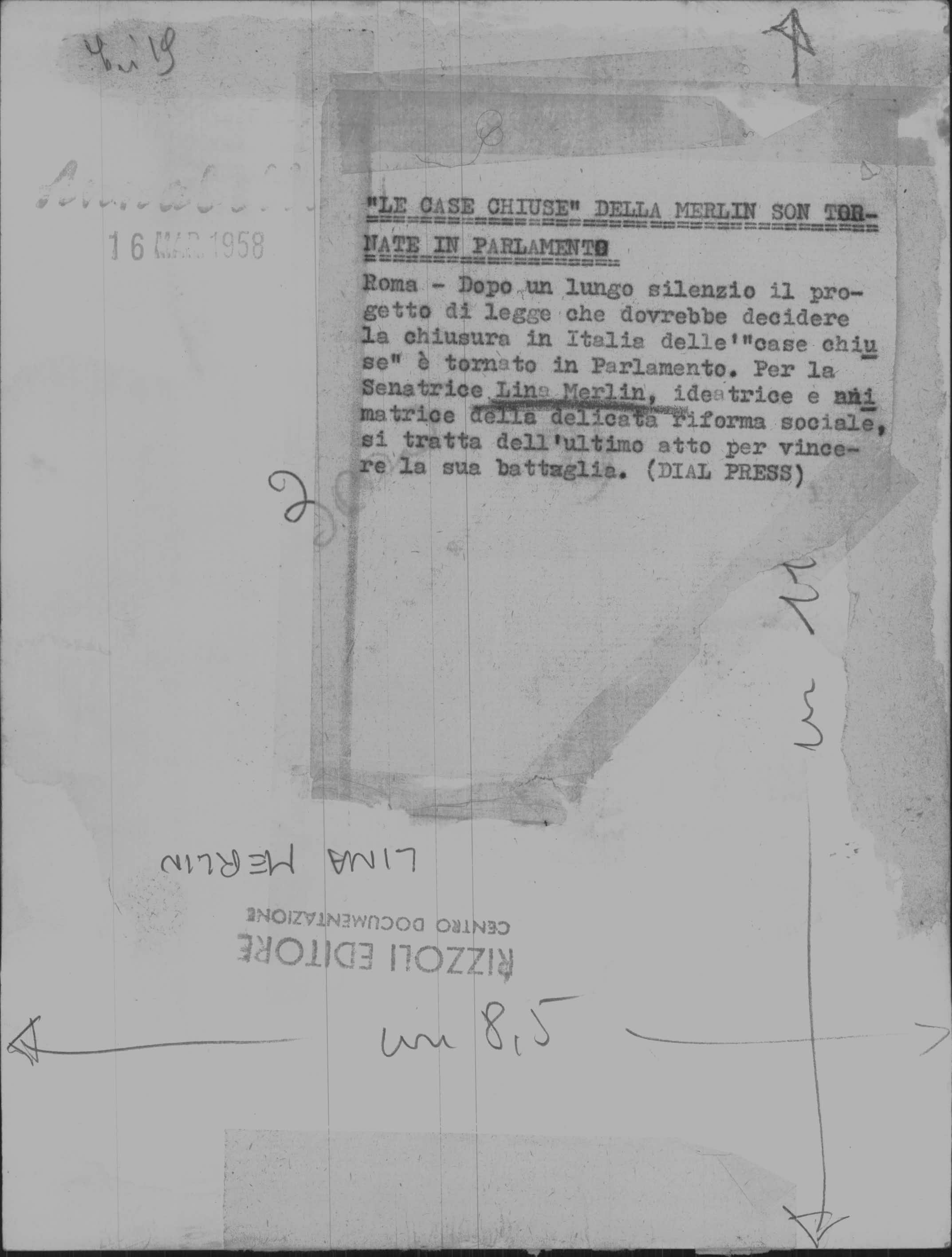
The police do nothing
And then the awareness of being exploited and having ended up in a situation in which even those who should supervise are colluded, as stated in number 16:
«As could enrich certain beings with the blood of the poor victims. Agreements with traffickers, ruined girls. What impresses is that the police never investigate. «
Or as the letter number 26 tells us: « (..) In addition to being exploited by the owners of said local said, we are also exploited by certain dishonest health workers responsible by the Authority for daily visits and control to these houses ».
Some (letter number 27) is strongly aimed at Senator Merlin
«(…) The windows are hermetically closed (…) exit sun is prohibited, order of the commissioner. The Quaestor prohibits us the exit because he says he fears scandal and allows the teutters in the coffee to speak aloud of their shady takings. (…) Believe me excellent lady, even by changing the laws in our regard it will always be the benefit of the estates and we will always have the victims. And then, lady, fight, you, so that this sad market ceases, close close these tombs of the living ».
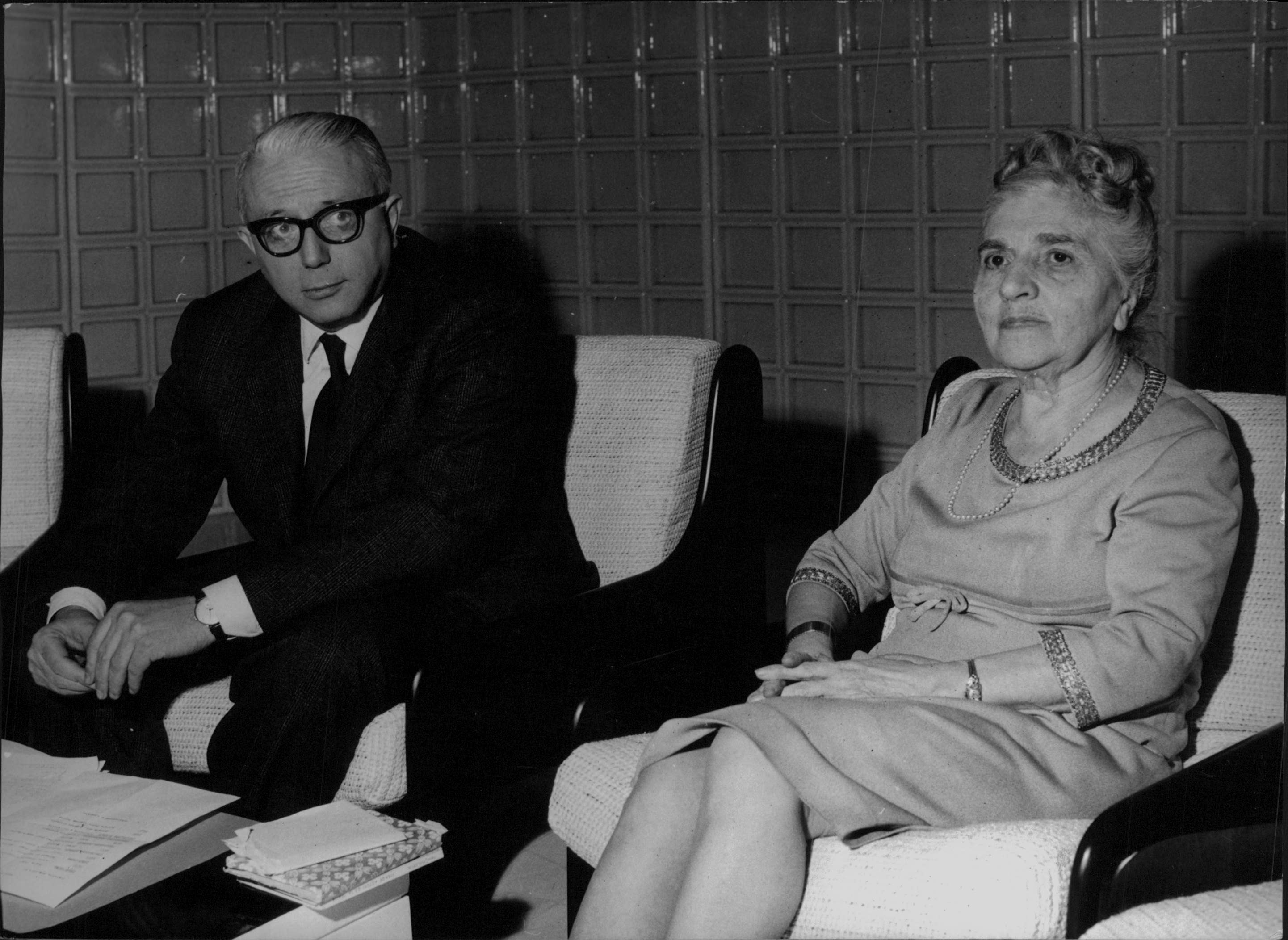
The hope of a different life
Some of these girls (letter number 24), however, manages to imagine a different life:
«Finally a hope entered our hearts (…) sooner or later we will be freed and we will be able to return civil people, with rights equal to all the others (…) we sleep in the same beds where during the day we receive the customers and every night we have nightmares. (…) You have to break this chain. We want to go back to being women like the others and who ensure a job with honest job and not a charity «
Take advantage, teased with sanitary controls to the water of roses, carded and harnessed in bureaucracy: even to choose to change my life and close the door of the house behind it was not a simple path as we read in letter 30
«… I had the strength to resist in the sole hope of returning to being a good person. (…) At the right time I was not released the workbook because I still didn’t have a residence. He asked for the residence, he was not granted because I did not have a job that justified my presence in that city ».
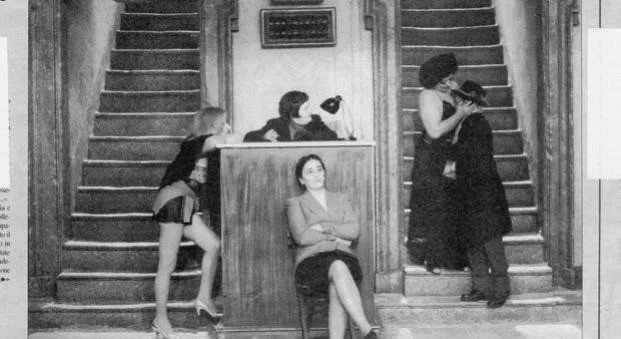
Card, then condemn to life
« » No profession I can be able to do, having practiced « the houses » and in any place I present myself want information that of course I cannot make it take, because they would come horrendous. Because no person could have confidence in a woman who has the past marked by this profession « .
The final part of the book contains favorable opinions (few actually in the letters arrived at Senator Merlin) and opposed to the closure of the case. « We are not slaves of anyone, but free of our actions- reads in the writing cataloged as letter 42- the prostitution that you like, that is, the free one- we still read in the same extract- makes us disgust ». Someone, however, to explain their condition uses the image of the « shopkeepers of human meat and poor women slaves of these mercenaries » (letter 43) and ask the senator to free them from slavery.
« Lurid » men
Disenchanted and disillusioned women waiting for the approval of the law. « To all those who buy my body I ask what happens of the project and everyone responds to the same way: the government has too much earning to close such an organization » (letter 44).
«Dear Senator Merlin – we read in the 48 – be our mother, the mother of all of us. Close the tolerance houses. Don’t listen to any man. They are all filthy, men. More married than the bachelors. (…) Authorized the companies, the offices to hire us at work ».
Where will the poor soldiers go?
Those who aspire to « honest » work, who considers themselves « buried alive », who fears the modules of the police headquarters and the pressures to declare that they are contrary to the closure of brothels. But there are also those who (letter 50) wonders « where hundreds of soldiers will go, all the beautiful and healthy youth what will they have to do? (So in the text), to the physical need of man, with the greatest risk of diseases. We Italians are not temperaments to compare with the Nordics, another blood flows in our veins ». Letter 61 seems to respond to this concern: «For three years I have lived in this infernal Boglia, I can’t get out of it. I find more logical that free prostitution is tolerated because it has always existed (…) finally the woman will be able to choose the man and these with conquest will be able to approach her. Our men must get used to it differently ».
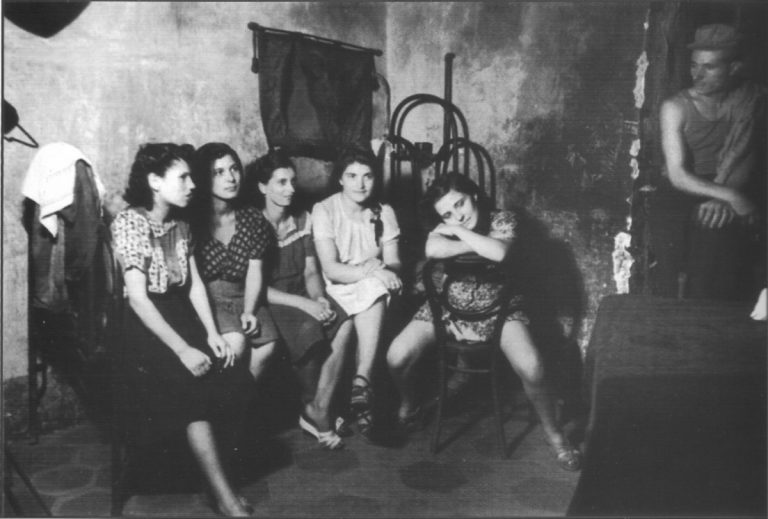
Sexual work today
70 years have passed since that book and by law and sexual work in Italy has profoundly changed, especially for the arrival of migrant women and for the horrendous phenomenon of trafficking which, according to the United Nations reports, has impressive numbers. The law that sets the prohibitions (not the prostitution in itself which is legitimate but its exploitation or aiding) is still Merlin, despite the fact that they have alternated about 170 bills which proposed to change the picture now in a prohibitionist sense, now with the intention of regulating whether the activity is « free » and not subject to exploitation. But the theme is deeply divisive In our country and no project has ever arrived in the classroom.
The short circuit of the Ateco Code
It is therefore not surprising that the controversy of the‘Introduction of a new ateco code – or one of those Istat codes that identifies free professions, defines its VAT games and is useful for statistical purposes – designed precisely to indicate those « services for the person » such as « the activities of accompanying and escorts (escort) ». The new code, or 96.99.92 would also indicate the « supply or organization of sexual services, organization of prostitution or management events of prostitution ». Where is the short circuit? The organization of prostitution is prohibited (penalties up to 8 years imprisonment) so there is a risk of coding a serious crime in an official act such as Istat classification. As if the figure of the protector was institutionalized by codifying the organization of prostitution only for tax purposes by climbing over the law.
Istat have specified that the new code is necessary to adapt to EU standards and that in Italy it will only concern legal activities such as marriage and speed dating agencies. So no circumvention of the law. But immediately the political controversy has rekindled: as soon as we mention the hypotheses of regulation of sexual work seems to return to the window the old theme of the reopening of closed houses controlled by the state, albeit with some make-ups of modernity, rather than facing a serious debate, perhaps even giving voice to the directly interested. Just as Merlin did 70 years ago.



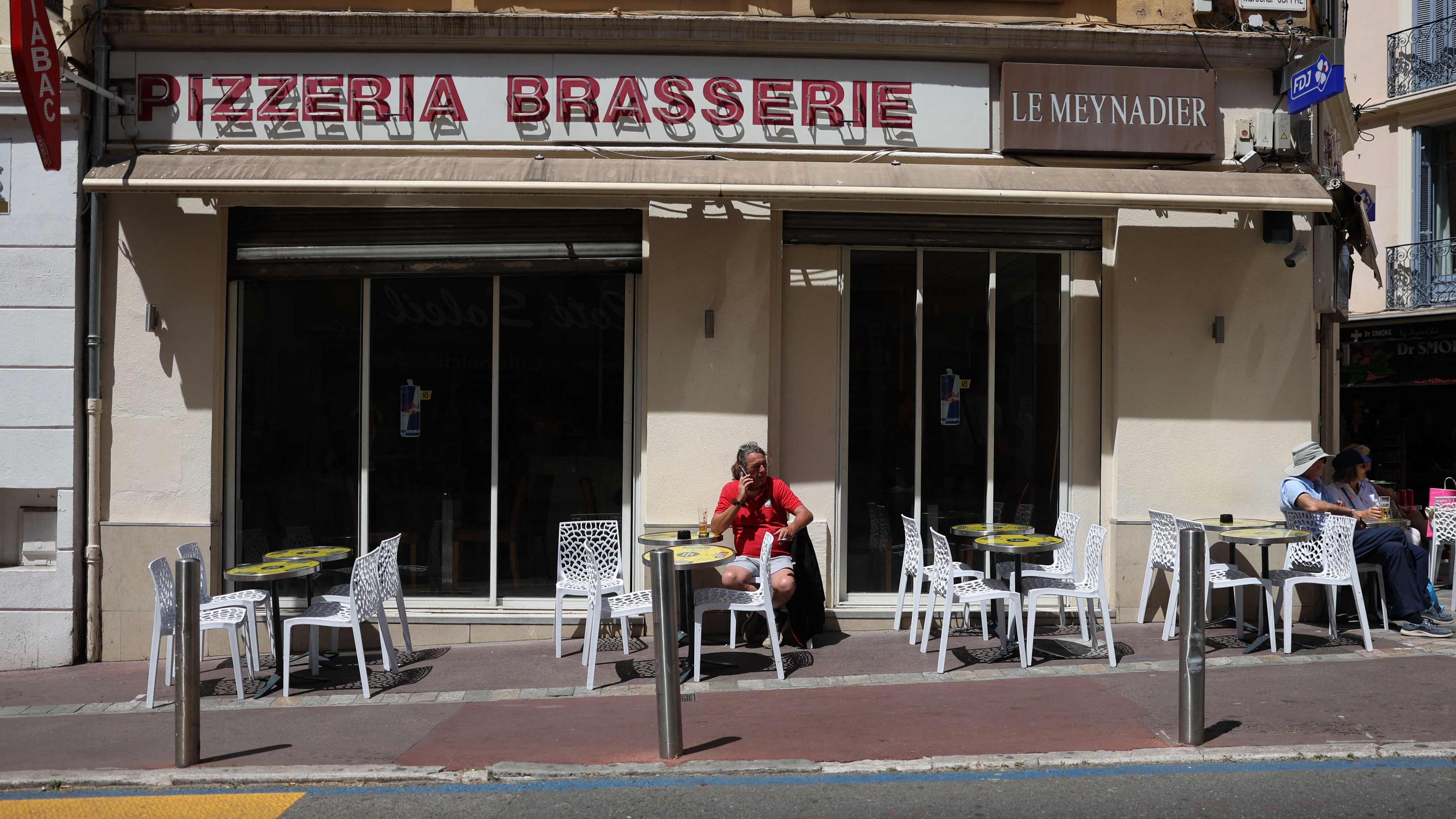
/s3/static.nrc.nl/wp-content/uploads/2025/05/24130306/web-2405CUL_freddie.jpg)